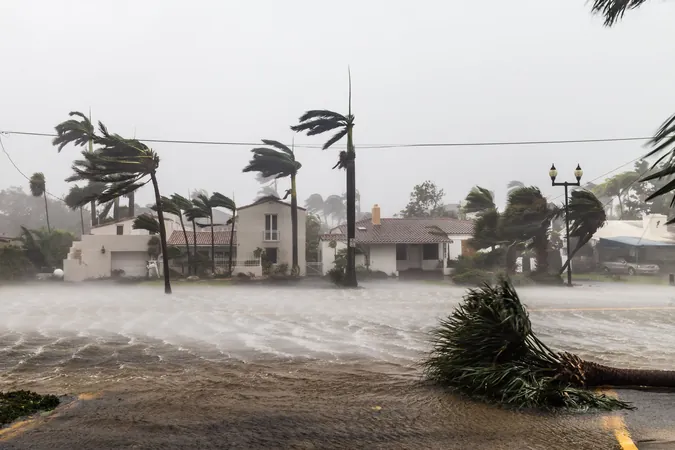
Disasters Unveil Alarming Delays in Colorectal Cancer Diagnoses in Puerto Rico
2025-04-14
Author: Mei
A Troubling Trend: The Impact of Crises on Cancer Diagnosis
Recent research reveals a shocking decline in colorectal cancer (CRC) diagnoses in Puerto Rico during the unprecedented challenges of Hurricane Irma, Hurricane Maria, and the COVID-19 pandemic. After these disasters, the statistics tell a grim story about delayed screenings leading to a surge in late-stage diagnoses.
A Critical Analysis
A groundbreaking analysis published in the journal Cancer highlights that limited access to healthcare during crises likely obstructed timely cancer detection, worsening overall health outcomes. Tonatiuh Suárez-Ramos, a co-lead author from the University of Puerto Rico, stated, "These findings suggest that the health care access issues we already face in Puerto Rico were exacerbated during these disasters."
The Research Framework
The study, utilizing data from the Puerto Rico Central Cancer Registry—boasting 95% completeness since 2010—examined first-time colorectal cancer diagnoses from January 2012 to December 2021. Researchers identified 18,537 cases but excluded 448 due to a lack of detailed diagnosis dates, narrowing their focus to 18,089 patients.
Significant Declines in Diagnosis
Data revealed a dramatic drop in CRC diagnoses immediately following each crisis. For instance, during the aftermath of Hurricane Irma, diagnoses plummeted by 17.5% in just one month. Even more concerning, a subsequent decline of 24.2% occurred after COVID-19 lockdowns were implemented.
The Alarming Shift Toward Late-Stage Diagnosis
While diagnoses for early-stage CRC remained below expected levels, the trend was alarmingly different for late-stage disease. Patients younger than 50 and those over 76 were finding themselves diagnosed at more advanced stages of cancer, suggesting that the interruptions in care led to dire consequences.
Acknowledging Limitations, But Paving the Way for Change
The researchers acknowledged certain limitations, such as incomplete stage data and the unavailability of data beyond December 2021. However, they emphasized that this is the first study of its kind in Puerto Rico, aiming to assess the broader impact of external disruptions on cancer diagnoses.
A Call to Action for Healthcare Improvement
Senior author Karen J. Ortiz-Ortiz stated, "By examining the effects of hurricanes and pandemics on cancer care, we aim to ignite a discussion on enhancing health systems to combat disparities and guarantee uninterrupted care access. Ultimately, we aspire to help individuals lead healthier lives, regardless of global crises."




 Brasil (PT)
Brasil (PT)
 Canada (EN)
Canada (EN)
 Chile (ES)
Chile (ES)
 Česko (CS)
Česko (CS)
 대한민국 (KO)
대한민국 (KO)
 España (ES)
España (ES)
 France (FR)
France (FR)
 Hong Kong (EN)
Hong Kong (EN)
 Italia (IT)
Italia (IT)
 日本 (JA)
日本 (JA)
 Magyarország (HU)
Magyarország (HU)
 Norge (NO)
Norge (NO)
 Polska (PL)
Polska (PL)
 Schweiz (DE)
Schweiz (DE)
 Singapore (EN)
Singapore (EN)
 Sverige (SV)
Sverige (SV)
 Suomi (FI)
Suomi (FI)
 Türkiye (TR)
Türkiye (TR)
 الإمارات العربية المتحدة (AR)
الإمارات العربية المتحدة (AR)